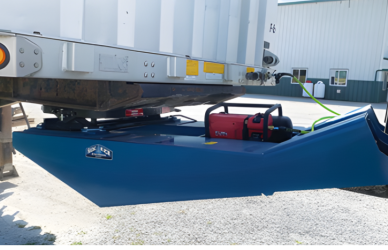Truck driving is a demanding profession that often exposes drivers to high levels of stress and frustration. Long hours on the road, traffic congestion, and tight schedules can take a toll on a trucker’s mental and physical well-being. It is crucial for truckers to prioritize relaxation and stress management to maintain their health and overall job satisfaction. In this blog post, we will explore effective relaxation techniques that can be incorporated into a trucker’s routine, both behind the wheel and during downtime.
Failing to address stress can have serious consequences for truckers. Chronic stress can lead to fatigue, decreased concentration, irritability, and even physical health issues like high blood pressure and cardiovascular disease. Additionally, unresolved stress can affect sleep quality, which is vital for maintaining alertness and safe driving practices. Recognizing the importance of managing stress is the first step towards a healthier and more balanced trucking career.
Tips for Staying Calm in Frustrating Situations
Deep Breathing – Take slow, deep breaths, focusing on inhaling and exhaling fully. This technique helps activate the body’s relaxation response and can be practiced while driving.
Progressive Muscle Relaxation – Starting from your head and moving down to your toes, tense and then relax each muscle group in your body. This method promotes overall relaxation and can be done discreetly in the driver’s seat.
Quick Techniques You Can Do Behind the Wheel
Mindful Observation – Pay attention to your surroundings, focusing on the details of the road, the sounds, and the sights. This practice helps shift your attention away from stressors and into the present moment.
Affirmations – Repeat positive affirmations or self-encouraging phrases to yourself. Examples include “I am calm and in control” or “I can handle any challenge that comes my way.” Affirmations can help shift your mindset and alleviate stress.
Aromatherapy – Utilize the power of scents to promote relaxation. Keep a small bottle of lavender essential oil in your truck and inhale its calming aroma when you feel stressed or overwhelmed. Lavender is known for its soothing properties and can help induce relaxation and relieve anxiety.
Deeper Relaxation Techniques to Do During Downtime
Guided Imagery – Close your eyes and visualize yourself in a peaceful and calming environment, such as a serene beach or a tranquil forest. Engage your senses by imagining the sights, sounds, and smells of the scene. This technique can transport your mind to a more relaxed state, reducing stress and promoting mental well-being.
Meditation – Find a quiet place during downtime and practice meditation. Focus your attention on your breath or a specific point of focus, allowing your thoughts to come and go without judgment. Meditation promotes a state of relaxation, clarity, and inner calm.
Progressive Relaxation – Similar to progressive muscle relaxation, this technique involves systematically tensing and then releasing different muscle groups in your body while simultaneously focusing on deep breathing. By consciously releasing tension from each muscle, you can achieve a deep state of relaxation.
Additional Activities to Help Manage Stress
Exercise – Engage in physical activity during breaks or off-duty hours. Walking, stretching, or practicing yoga can release tension and increase endorphin levels, promoting relaxation and a positive mood.
Hobbies and Recreation – Pursue activities that bring you joy and help you unwind. Whether it’s reading, listening to music, painting, or engaging in a hobby, dedicating time to activities you love can significantly reduce stress levels.
Benefits of Practicing Relaxation Techniques
Reduced Stress Levels – Relaxation techniques help alleviate stress by activating the body’s relaxation response, resulting in improved overall well-being and mental health.
Enhanced Focus and Concentration – By managing stress, truckers can improve their ability to concentrate on the road, enhancing their alertness and ensuring safer driving practices.
Improved Physical Health – Stress management techniques can help regulate blood pressure, reduce the risk of cardiovascular disease, and promote better sleep patterns, leading to improved physical health.
Improved Sleep Quality – Practicing deep relaxation techniques can lead to better sleep patterns, allowing truckers to experience more restful and rejuvenating sleep during their downtime.
Enhanced Mental Clarity – By incorporating deep relaxation into your routine, you can experience improved mental focus, concentration, and decision-making abilities while on the road.
Emotional Well-being – Deep relaxation techniques can help alleviate symptoms of anxiety and depression, providing truckers with a greater sense of emotional balance and resilience.
Prioritizing relaxation and stress management is crucial for truckers to maintain their mental and physical well-being. Incorporating quick techniques while on the road and more involved methods during downtime can significantly reduce stress levels and promote a healthier trucking career.
Remember, taking care of your mental and physical health is just as important as meeting your professional responsibilities on the road. Invest in your well-being and enjoy a more fulfilling and relaxed trucking journey! Take the time to prioritize relaxation and nurture your mental and physical health for a more fulfilling and balanced trucking journey.











